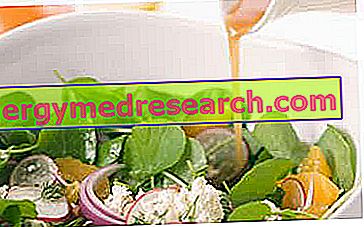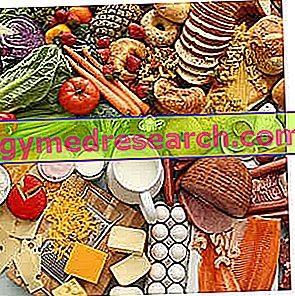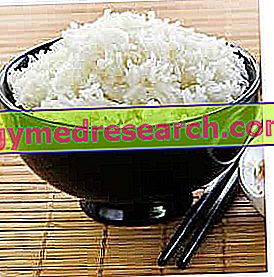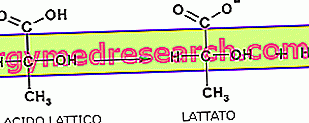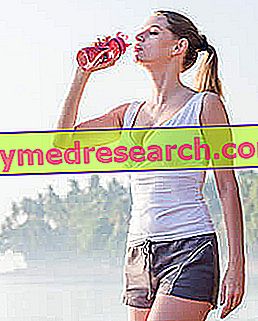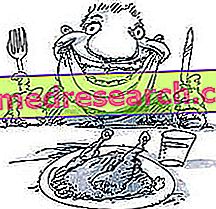With its action, alcohol negatively affects sports performance. Obviously its effects are dose dependent and if small amounts (30-40 grams per day for men and 20-30 g / day for women) are all in all tolerable, high doses can seriously compromise sports performance. Alcohol-alcohol , despite its high energy value, can not be considered a nutrient
Category nutrition and sport
Mineral salt requirements In feeding the cross-country skier, reaching the ration of mineral salts is the most difficult aspect to deal with; for those who move 1.0-3.0 liters of water per day with just sweating, the need for potassium and magnesium increases significantly. Also in the diuresis MA above all in the SUDORAZIONE, the salts (through some chemical-physical processes of passive or active nature) follow the water and are dispersed; this means that their contribution MUST increase in relation to the metabolic needs and to the sweat losses during the performance
Watch the video X Watch the video on youtube Nutrition and physical activity In sport and physical activity in general, nutrition plays a fundamental role; before trying out a training session, for example in the gym, it is necessary for the body to be put in conditions of: Best support the most intense training stimulus possible Quickly recover from one series to another Extend performance for as long as necessary Keep your blood sugar steady for proper brain function Never reach levels of energy and water-salt depletion that require an excessively long muscle recovery between one session and
Feeding - the skier's diet is a diet that, in broad terms, affects all sports practitioners with long or very long performance times; the cross-country skier is therefore the one who practices: running or running, walking, cycling (road or mountain-bike), cross-country skiing, swimming - long races, rowing - long races, canoeing - long races, triathlon, spearfishing, etc
Carbohydrates are an energy substrate NECESSARY for the survival of human beings; their quantity / percentage in the diet (whether weighted, in excess or in defect) greatly affects the general health status of the individual; furthermore, there are conditions / situations in which carbohydrates play an even more important role: one of these is aerobic physical activity
The administration of alkaline salts such as citrates and bicarbonates promotes the outflow of lactic acid from the muscles to the circulatory stream and counteracts the muscular and metabolic acidosis. Muscular and metabolic acidosis can be determined by an unbalanced diet (tendentially hyperproteic and / or hyperlipidic, at the same time poor in carbohydrates and mineral salts deriving from vegetables and fruit), especially when combined with high intensity muscular work
Post Workout Snack What to eat after training? This is one of the main questions that grip many athletes and gym goers. Doubts arise from the awareness that the various foods are different not only for composition, but also for digestive needs, and that all these characteristics must adapt to the needs of the individual athlete
What is a hunger crisis? For hunger crises during sport we mean the moment when the glycogen reserves of the body, especially the muscular ones, are insufficient to sustain the physical effort necessary for the athlete. The result is a relatively abrupt and often noticeable decline in performance, with the appearance of symptoms such as a sensation of cold, intense hunger, a sense of weakness and general malaise (the athlete literally feels "emptied" of energy)
Introduction The state of hydration is a very important factor, both for health and for sporting performance. Since the adult organism contains up to 50-60% of water, all bodily functions depend on the state of hydration. In fact, in the extra- and intra-cellular water many elements are diluted and transported, including large molecules and small ions
The runner should be the first among all sportsmen, to follow the basic rules of the Mediterranean diet. The Mediterranean diet involves the intake of carbohydrates, fats and proteins in these proportions: 60-65% carbohydrates 20-25% fat 10-15% protein The rules of Mediterranean cuisine are simple to follow as they enhance the typical products of our food tradition: olive oil, fresh fruit, legumes, whole grains, vegetables, fish and red wine


